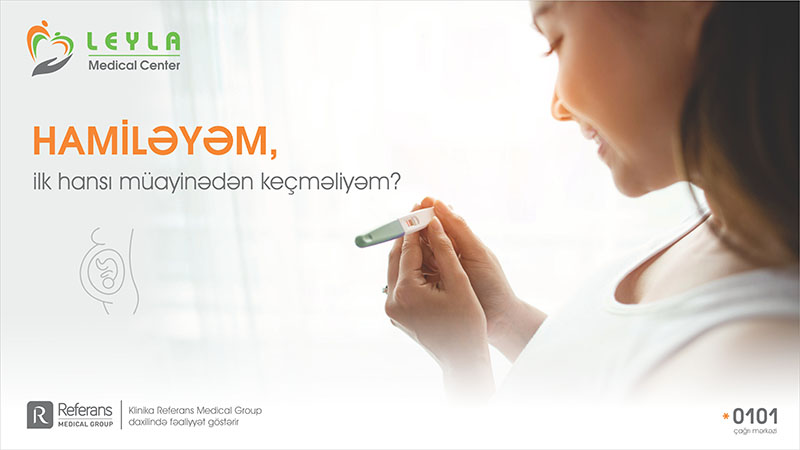
I’m pregnant. What examination should I start with?
- Pregnancy begins with fertilization — the union of the female egg and the male sperm in the fallopian tube. On average, it lasts 280 days, or 40 weeks, and is counted not by months but by weeks.
- 🔸 THE MOST IMPORTANT TESTS AND EXAMINATIONS DURING PREGNANCY:
- At the first stage:
- – Ultrasound to confirm intrauterine pregnancy and listen to the embryo’s heartbeat.
- 6–8 weeks:
- – Measurement of blood pressure and weight
- – Complete blood count
- – Determination of blood group and Rh factor
- – Thyroid hormone tests
- – Tests for hepatitis B, hepatitis C, syphilis, HIV
- – TORCH panel (toxoplasmosis, rubella, cytomegalovirus, herpes)
- – Urinalysis
- – Vaginal smear
- 11–14 weeks:
- – Ultrasound to assess nuchal translucency and presence of nasal bone
- – Screening for chromosomal abnormalities
- 15–20 weeks:
- – Blood pressure and weight monitoring
- – Tests depending on the pregnant woman’s complaints
- 20–22 weeks:
- – Fetal Doppler ultrasound
- – Assessment of the fetus’s internal organs and search for possible developmental anomalies
- 24–28 weeks:
- – Complete blood count
- – Glucose tolerance test
- 28 weeks:
- – If the mother has a negative Rh factor, an anti-Rh immunoglobulin injection is given
- From 28 weeks:
- – NST (non-stress test) — monitoring the fetal heartbeat (if no risk, done at 34 weeks)
- – If there is risk — CTG (cardiotocography)
- In the last trimester, special attention should be paid to controlling blood pressure and weight gain.
- 32–36 weeks:
- – Ultrasound to assess the baby’s weight, amount of amniotic fluid, placenta position, cervical length, and fetal presentation
- With 21 years of experience, our Mother and Child Center cares about your health — because your health is our top priority!
12 June 2021
Loading...